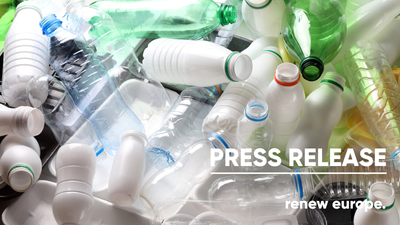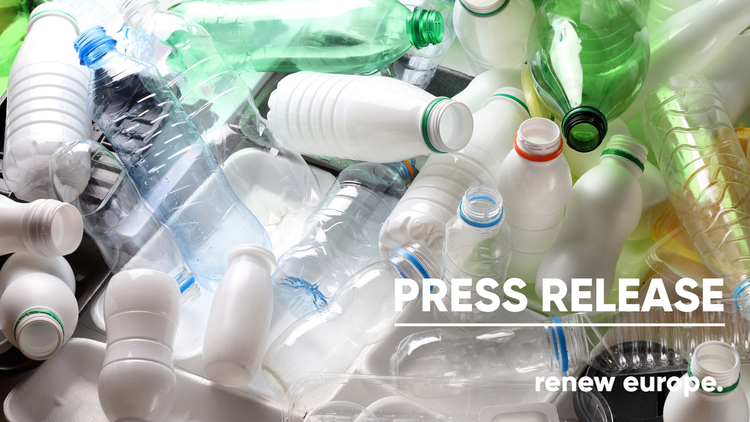
Packaging deal: Renew Europe succeeds in eliminating PFAS chemicals from contact food packaging

Renew Europe welcomes today’s agreement, after more than one year of intensive negotiations, between the Parliament and the Council on the Regulation on Packaging and Packaging Waste. This agreement marks a turning point in our aim to set up a functional circular economy in the EU, which is a key priority for Renew Europe.
The Renew Europe group is pleased that the agreement on the revision of packaging and packaging waste regulations, hammered out by the co - legislators, sets new and ambitious standards on how packaging and packaging waste will be handled sustainably in the near future. In addition to banning PFAS or 'forever chemicals’ for contact-sensitive food packaging by 2026, which will be a real win for people's and nature's health, the agreement reached consists of the following main elements, which are :
- A packaging waste reduction target for all packaging materials : 5% by 2030, 10% by 2035 and 15% by 2040.
- Mandatory recyclability of packaging by 2030 : Given the need for a functioning circular economy, all packaging in the European Union will have to be recyclable by 2030, promoting a more sustainable approach to resource management.
- A ban on single-use plastics in HORECA by 2030: In response to the proliferation of single-use plastics and their harmful effects on ecosystems, the regulation provides for a ban on single-use plastics in cafés and restaurants for retail sales by 2030, in order to promote the adoption of reusable alternatives.
- In order to maximise the efficiency of packaging and minimise waste, a maximum empty space rate of 50% has been established, ensuring that packaging is appropriately sized and proportionate to its contents.
- By the end of 2027, the Commission will have to assess the proposed sustainability targets and criteria for bio-based plastics, as a key resource for moving away from dependence on oil.
MEP Frédérique Ries, (MR, Belgium) and Renew Europe rapporteur says after the agreement reached with the Council :
« For the first time in environmental legislation, Europe is setting clear targets for reducing packaging consumption, regardless of the material used (plastic, wood, ferrous metals, aluminium, glass, paper and cardboard). We call for efforts from all industrial sectors, but also from the Member States, but we also wanted the consumer to play a role in this fight against overpackaging. We have sent a strong message in favor of a more virtuous European packaging market that respects food safety. This is why the ban on persistent PFAS chemicals is a big victory for the health of European consumers. But it was also essential that environmental ambitions meet industrial reality with an agreement that promotes innovation, postpones for 5 years restricting certain packaging formats, for fresh fruit and vegetables, and above all provides for a certain number of exemptions for micro – businesses. »
According to the latest Eurostat report, the amount of packaging waste in the European Union reached 84 million tons in 2021, and the European average increased by 10.8 kilograms in one year to the sum of 188.7 kilograms of packaging waste per inhabitant. With a turnover of around €350 billion per year, the adoption of common rules for all market participants is essential, as is the alignment of environmental criteria in packaging waste management for all 27 Member States.